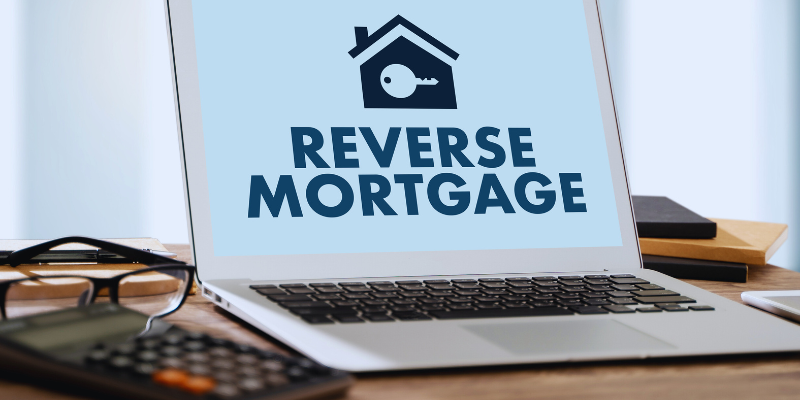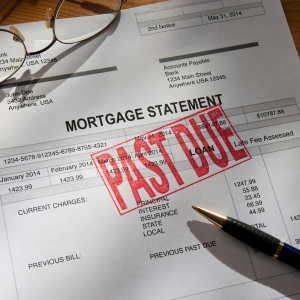
Understanding Reverse Mortgages: a Comprehensive Guide
A reverse mortgage can be a helpful option for Michigan homeowners preparing to sell, especially when factoring in the state’s unique economic conditions. Gaining a clear understanding of how reverse mortgages work is essential to using them effectively during the sales process.
In simple terms, a reverse mortgage lets homeowners aged 62 or older convert part of their home equity into cash. This cash can support different parts of the selling journey. Unlike conventional loans, reverse mortgages don’t require monthly payments; repayment kicks in only after the homeowner sells or permanently leaves the home.
This arrangement gives you financial freedom by easing immediate money concerns and letting you make smart home improvements that could raise the value of your house. There are some good things about reverse mortgages, but there are also some bad things and fees that buyers need to think about carefully.
Michigan sellers should think about working with experts who know about both reverse mortgages and the local real estate market to make sure the deal goes smoothly and helps them reach their financial goals.
Reverse Mortgages vs Traditional Mortgages: Know the Differences
Selling a home in Michigan with a reverse mortgage starts with understanding the key differences between mortgage types. Reverse mortgages give older homeowners the ability to turn home equity into cash, often without the need to sell or make monthly payments.
Traditional mortgages, on the other hand, have you pay down the loan balance over time, which builds equity. With a reverse mortgage, on the other hand, the loan sum goes up because interest is added to the amount you borrow. This can make your equity less when it’s time to sell.
These differences play a big role in the financial outcome when selling your home. Knowing how each type affects equity and obligations is essential for Michigan homeowners who want to make smart decisions during the selling process.
Legal Implications of Reverse Mortgages in Michigan
When you sell a home in Michigan that was refinanced, you have to follow a number of law requirements. These loans, which are usually called Home Equity Conversion Mortgages (HECMs), let homeowners aged 62 and up borrow against their home’s value.
When selling, the owner or heirs must ensure the reverse mortgage is paid off, usually from sale proceeds. Michigan law also requires that all liens be resolved before transferring ownership.
Another important rule is that sellers must make any mortgage debts known to the buyer during the sale. To handle title changes and legal issues well, it’s best to work with a real estate lawyer who knows how reverse mortgages work in Michigan.
Being well-informed on these legal issues can help you avoid disputes and maintain compliance with both state and federal housing laws.
Financial Planning Strategies for Seniors with Reverse Mortgages
Michigan adults who want to sell their home with a reverse mortgage need to make sure they have a good plan for their money. To fully understand your loan’s terms, you should know how much you owe and what costs might come up when you sell.
Also, get a good idea of how much your home is worth right now. This will help you decide when to sell and how much to ask. Working with a real estate person who has experience with reverse mortgages can help you sell your home faster.
A financial planner can also help you make sure that the money from the sale fits in with your long-term plans for retirement. Also, think about how the sale might change your tax situation or your ability to get benefits like Medicaid.
Seniors can move forward with confidence if they have a plan that takes into account both the financial and emotional parts of this big decision.
Key Considerations When Selling a Home with a Reverse Mortgage
Selling a Michigan home with a reverse mortgage involves several critical considerations. First, you must understand how your loan will be paid off from the sale proceeds—including any interest and closing costs.
It’s important to make sure that the sale covers the whole loan amount. Also, it’s smart to work with a real estate agent who knows the Michigan home market and has experience handling reverse mortgage sales.
Maintaining open communication with your lender throughout the process is crucial to avoid penalties or missed steps. State-specific regulations and possible tax implications should also be explored before listing your property.
If you want to sell your house fast in Michigan, never underestimate the importance of presenting it well. Smart marketing and thoughtful staging can make your home stand out, attract more buyers, and potentially lead to higher offers.
Common Challenges in Selling Homes with Existing Reverse Mortgages

There are some things that you need to do in Michigan in order to sell a home with a reverse mortgage. It can be hard to make sure that the interest and fees on the reverse mortgage are paid off in full at the closing.
This can be problematic if the property’s value hasn’t grown as expected or if the market has cooled. Buyers may also be hesitant if they’re unsure about the reverse mortgage lien, so clear communication is key.
Before close, sellers must also get payoff statements on time and follow all legal requirements. It can also be hard to choose the right time, especially if you’re moving or shrinking at the same time.
Having a knowledgeable agent and legal advisor can help you manage these complexities and complete the transaction with fewer surprises.
How to Maximize Home Value When Selling with a Reverse Mortgage
To get the most out of your Michigan home sale when a reverse mortgage is involved, start with targeted improvements. Boosting curb appeal—like updating landscaping or applying a fresh coat of paint—can draw more interest.
Adding modern features or neutral colors to key rooms inside your home, like the kitchen and bathrooms, can make it look better. Staging your home also helps people picture themselves living there, which is important.
Work with an agent who knows how to market homes with reverse mortgages. High-quality photos and virtual tours are essential tools in today’s digital real estate space.
We buy houses cash in Northville, and with the right improvements and professional guidance, you can increase your chances of receiving strong offers that align with your financial goals.
The Importance of Disclosure When Selling a House with Debt Obligations

When selling a Michigan home with a reverse mortgage, being transparent about your debt obligations is not just good practice—it’s a legal requirement. A reverse mortgage involves borrowed funds against home equity that accrue interest over time.
Because of this, it’s important to let everyone involved know about the loan and its terms. Should you not do this, problems may arise, such as unexpected lien issues or delays in the close.
Making everything clear helps buyers make smart choices and makes sure the sale follows Michigan’s real estate laws. It also builds trust and keeps sellers out of trouble with the law in the future.
Handling this information properly can smooth the path to a successful and stress-free sale.
Tax Implications of Selling Property with a Reverse Mortgage
Selling your Michigan home with a reverse mortgage means you’ll need to be aware of potential tax impacts. Fortunately, most of the funds received from the sale are considered loan proceeds—not taxable income.
That said, you’ll still want to consider capital gains taxes. If you meet the IRS criteria for a primary residence exclusion ($250,000 for individuals, $500,000 for married couples), you may avoid paying taxes on most or all of your profit.
You will be able to avoid any problems if you work with a tax expert who knows both Michigan laws and reverse mortgage rules. They can help you make sure you’re following the rules and get the most money out of your business.
Professional Services Needed for Selling Homes with Reverse Mortgages

Selling a Michigan home with a reverse mortgage is easier when you bring in the right professional support. A skilled real estate agent familiar with reverse mortgage sales can guide you through the market and address any lender-related complexities.
You’ll also need a professional appraiser to help you figure out how much to ask for your house and how to properly market it. A real estate lawyer or financial advisor with knowledge in the area can help you a lot with contracts and budgeting.
Don’t forget the role of a title company. These professionals handle lien searches and make sure ownership transfers are clean and legal. Together, these services create a well-coordinated process, giving you a better shot at a successful and profitable sale.
Navigating the Michigan Real Estate Market for Home Sellers
If you want to sell your Michigan home with a reverse mortgage, you need to know how to deal with a market that is always changing. Interest rates, seasonal patterns, and the state of the local economy are just a few of the things that affect buyer desire and prices.
To be successful, work with a real estate agent who understands the specifics of both the Michigan market and reverse mortgages. They can help set a competitive price that accounts for your home’s features and your outstanding loan balance.
Also, focus on home presentation—good staging and photography help your home stand out. Knowing the legal disclosure requirements associated with reverse mortgages is essential, too.
In today’s market, having a well-thought-out plan and professional help can make all the difference, especially when dealing with the ins and outs of a reverse mortgage.
Step-by-step Process of Selling a House in Michigan
Selling a Michigan home with a reverse mortgage involves a series of important coordinated steps. Start by reviewing your loan details with your lender to determine how much is owed and what conditions apply to a sale.
Next, hire a real estate agent with experience in both reverse mortgages and the Michigan real estate market. They’ll assist with pricing, listing, and negotiations. Preparing the home by making minor repairs and boosting curb appeal can significantly improve buyer interest.
Once your home is listed, your agent will market it using professional photography and strategic platforms. As offers come in, evaluate them with care to ensure the sale will cover your mortgage debt.
To ensure a smooth closing, always work with a trusted title company and legal professionals who can help resolve any potential legal issues and facilitate a seamless transfer of ownership. Blue Moon Acquisitions buys houses for cash in any situation — reach out today to get started!
Evaluating Your Home’s Equity: the Role of Appraisals in Sales
Understanding your home’s current equity is key when selling with a reverse mortgage in Michigan. A professional appraisal will give you an accurate picture of what your home is worth based on market data and property condition.
The appraisal is very important for people who are selling their home because it determines if the sale price is enough to pay off the reverse mortgage amount. A correct value helps you set a fair price for your home while protecting your financial interests.
Appraisals can also reveal areas where minor improvements might boost value before listing. This added insight helps with marketing, negotiation, and overall planning—especially when your equity position determines what you’ll walk away with post-sale.
What Happens If You Have a Reverse Mortgage and You Sell Your House?
If you have a reverse mortgage and want to sell your Michigan home, you’ll first have to pay off the loan amount, which includes the principal, interest that has been added, and any fees. Usually, the money from the sale is used to pay this off.
To ensure a smooth process, price your home strategically and market it well so you can cover the mortgage and still receive additional funds. Collaborate with a real estate agent who knows the local market and has experience with reverse mortgage transactions.
It’s also helpful to work with a financial advisor who can help you manage tax implications and plan how to use the proceeds. This combination of preparation and professional support makes it easier to move forward after the sale.
What Is the 95% Rule on a Reverse Mortgage?
The 95% rule is designed to protect homeowners and heirs when the reverse mortgage loan balance exceeds the home’s value. In Michigan, if this happens, the home can be sold for 95% of its appraised value to settle the debt.
This rule prevents families from being burdened with repaying more than what the home is worth, even in a declining market. To take advantage of this, you must get a professional home appraisal and inform your lender of the results.
By understanding and applying the 95% rule, Michigan homeowners can limit financial risk while ensuring a smoother transaction, even if the home’s value doesn’t match the loan amount.
What Is the Biggest Problem with Reverse Mortgage?
One of the main issues with reverse mortgages is their complex financial structure, especially when it comes time to sell. While they allow seniors to access equity without monthly payments, they can significantly increase the amount owed over time.
If the property’s value hasn’t increased, there may be little equity left after covering the reverse mortgage debt. Additionally, upfront fees and interest can erode what might have been a large profit.
This makes it crucial to work with a real estate agent and advisor who understand how to navigate a reverse mortgage sale in Michigan. Careful planning helps avoid unexpected costs and protects your financial future during the selling process.
Who Owns Your House After a Reverse Mortgage?
A common misconception is that the lender owns your home after you take out a reverse mortgage. In reality, you retain ownership of the property as long as you meet the loan conditions—such as maintaining the home and paying taxes and insurance.
The lender only holds a lien, similar to a traditional mortgage. If you decide to sell, you must repay the reverse mortgage with the proceeds, but you control the sale and remain the legal homeowner throughout the process.
Understanding this distinction allows Michigan sellers to approach the transaction with confidence, knowing they have full ownership rights until the loan is paid off or the home is transferred.
Useful Michigan Blog Articles
- Delinquent HOA Dues in Michigan
- How To Successfully Sell Your Michigan Home With A Reverse Mortgage
- Can Medical Bills Force The Sale Of Your Home In Michigan?
- Selling Parents’ House After Death in Michigan
- Earnest Money Rules in Michigan
- Condemned House Requirements in Michigan
- How to Sell an Investment Property in Michigan
- Tax Implications of Selling Home in Michigan
- How to Avoid Closing Costs in Michigan
- How to Sell a Condemned House in Michigan
- Selling a Home to Pay Off Debt in Michigan
- Can Executor Of Will Sell Property in Michigan
- Can You Sell A House As Is Without Inspection in Michigan
- Selling A House To A Family Member in Michigan

| HECM REVERSE MORTGAGE | HOME EQUITY CONVERSION MORTGAGES | REVERSE MORTGAGE LOAN | MORTGAGE LOAN | MORTGAGE LENDER | RETIREES |
| BORROWERS | PAYMENT METHOD | HOMEOWNERS INSURANCE | HOMEOWNER’S INSURANCE | HOME OWNERSHIP | FEDERAL HOUSING ADMINISTRATION |
| FHA | FEDERAL HOUSING ADMINISTRATION (FHA) | OPTION | CREDIT | LINE OF CREDIT | JUMBO |
| LUMP SUM | PRIVACY | LUMP SUM | MESSAGE | U.S. | THE UNITED STATES |
| TEXT MESSAGING | TEXT MESSAGE | HOME APPRAISAL | REALTOR | MORTGAGE INSURANCE | HOMEOWNERS ASSOCIATION |
| HOMEOWNERS ASSOCIATION (HOA) | HOA | CONSUMER | U.S. DEPARTMENT OF HOUSING AND URBAN DEVELOPMENT (HUD) | NON-RECOURSE LOAN | |
| NEWS | FINANCED | REVERSE MORTGAGE YOU | REVERSE MORTGAGE THE | EQUITY CONVERSION MORTGAGES | CONVERSION MORTGAGES HECMS |
| PROPRIETARY REVERSE MORTGAGES | LINE OF CREDIT | OF THE LOAN | THE LOAN IS | A REVERSE MORTGAGE YOU | A REVERSE MORTGAGE THE |
| OF A REVERSE MORTGAGE | HOME EQUITY CONVERSION MORTGAGES | TYPE OF REVERSE MORTGAGE | EQUITY CONVERSION MORTGAGES HECMS | TYPES OF REVERSE MORTGAGES | REVERSE MORTGAGES REVERSE MORTGAGES |
| FOR A REVERSE MORTGAGE | FEDERAL HOUSING ADMINISTRATION FHA |
